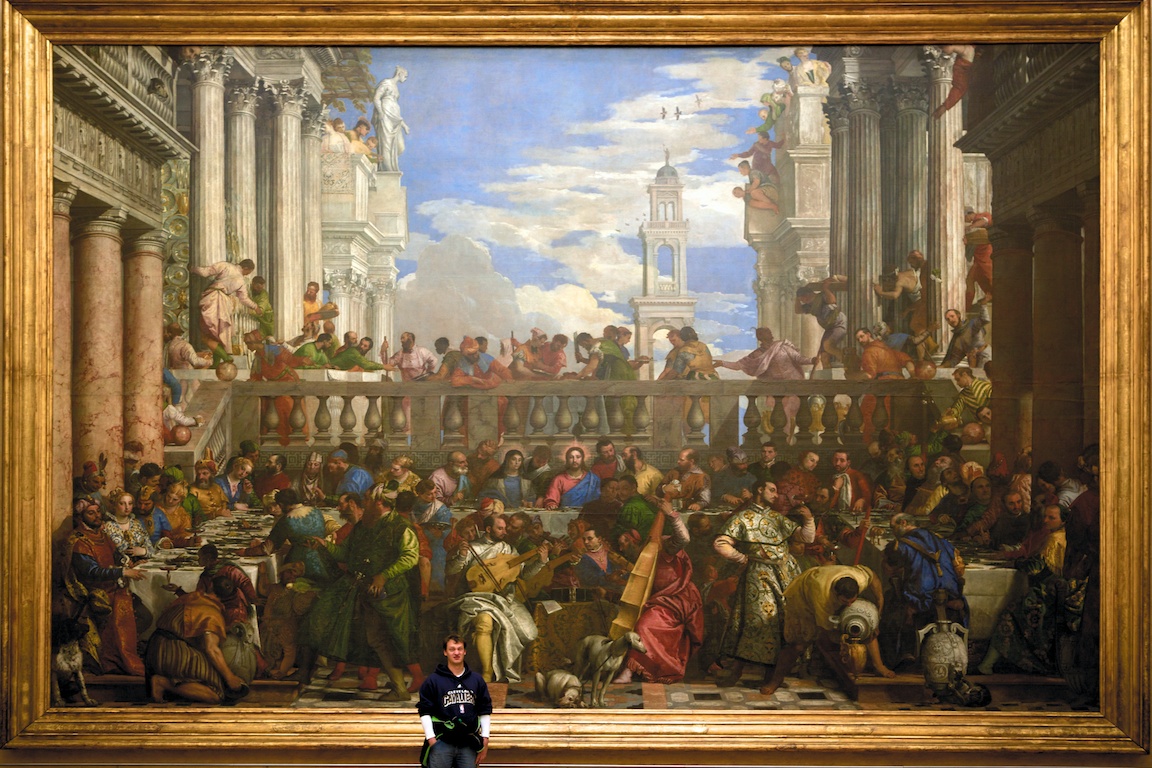I think it is unfortunate that a reading of Jesus’ first miracle evokes a conversation about the evils of drinking. I have heard all of these excuses before. Of course it was alcoholic wine and I’m sure people got drunk. It was a party what do people do at parties? They don’t drink grape juice unless they are modern prudes who still manage to miss the point of this event. And who cares if they got drunk? Every grape anyone has ever gotten drunk on was a gift from the father above, so why not the grapes in this new creation? I am not condoning drunkenness just this drunken hermeneutic. I hope someday for a world where every sermon on the miracles of Jesus feeding the five thousand will be about gluttony.
There is so much more in the passage. John starts out “in the beginning” does this remind you of anything? In case you missed it, keep going. He continues the story vs. 29 “the next day”, vs. 35 “the next day”, vs. 43 “the next day”, 2:1 “On the third day”. Wait a minute, seven days? And, the seventh day is the third day? Does this remind you of anything? It should. Jesus is recreating the world and on the seventh day he goes to a party. But it’s not just any party it’s a marriage feast, on the third day. In fact there were seven feasts in the Jewish calendar. After the work on the cross is done Jesus rose the third day to be joined to his bride the church. Jesus spoke of himself as being anointed for burial (Mark 14:8) and the bridegroom celebrating (Matthew 9:15) with his friends. The actions of Jesus were not just random they had rich deliberate purpose. Interesting these connected in my mind and apparently this passage mirrors Mary’s anointing of Jesus in the chiasm of the book of John, according to Peter Leithart. Jesus turns the funeral into a wedding.
Another important element is the jars. They were not just random jars. They were jars for the Jewish rights of purification. He takes the ritual water and turns it into wine. You know this had to make the Pharisees mad. And Jesus is smirking to himself as he turns their dead ritual into an implement for the celebration. And this use was more sacred than what they were going to use it for. This is the God of the Universe come to earth and taking joy in a wedding feast, that had come to the end of it’s merriment. So he keeps the feast going. They are content with their ritual and he is trying to show them something better. As C. S. Lewis said;
“It would seem that Our Lord finds our desires not too strong, but too weak. We are half-hearted creatures, fooling about with drink and sex and ambition when infinite joy is offered us, like an ignorant child who wants to go on making mud pies in a slum because he cannot imagine what is meant by the offer of a holiday at the sea. We are far too easily pleased.”
The disciples got it, well after his death they got it. Right before he held up the wine at another feast, for passover. Again he resets the rules as he recreates the world. From now on when you have a feast when you have bread and wine, remember me, remember my body and my blood. Soon after you see people getting drunk at this feast( I Corinthians 11:21). They seem to have taken it a little too far. But the connection is made, this was a feast a celebration, not a boring dry ritual. And the wine was real, not some grape juice concentrate, paste, whatever. It was wine it really did “gladden the heart of man” “and bread to strengthen man’s heart” Psalm 104:15.

